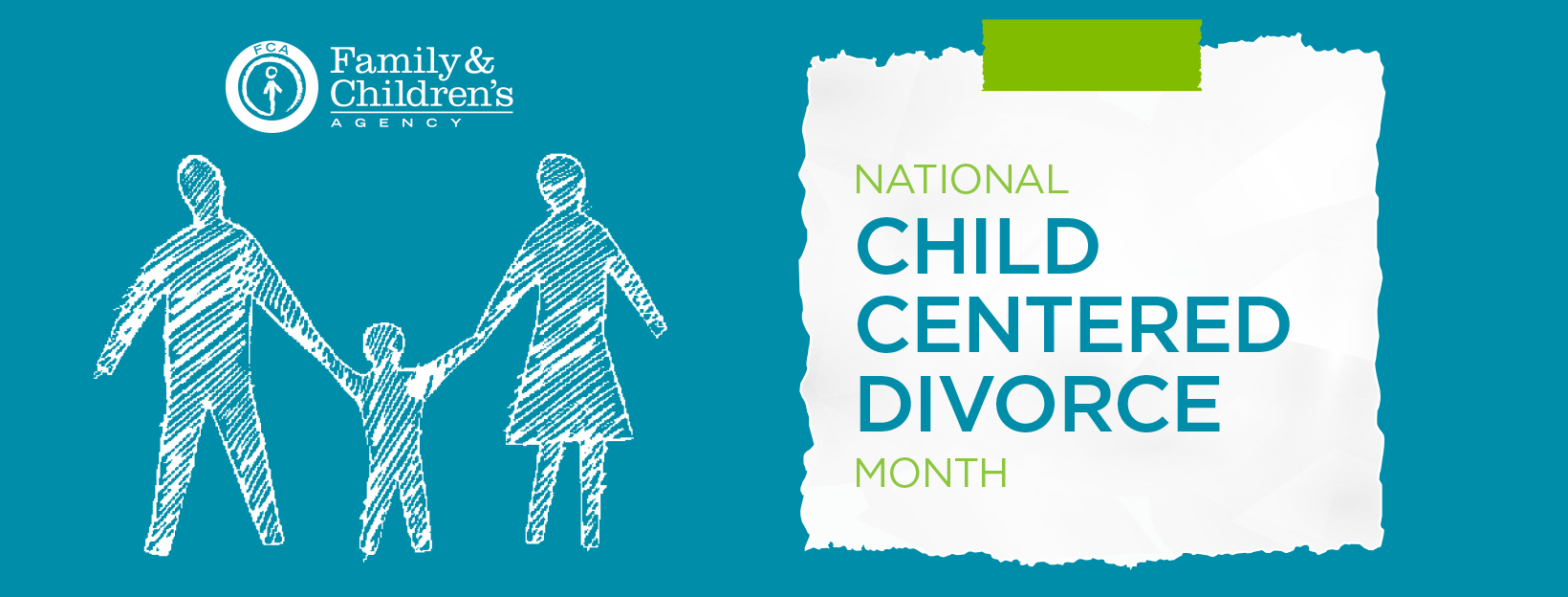
July is Child-Centered Divorce Month, and Tiffany McCarthy, LCSW and Director of Family Support at Family & Children’s Agency (FCA), discusses how FCA programs PEP (Parent Education Program) and Focus on KIDS (Knowledge, Insight, Decisions, Solutions) teach parents how to maintain healthy relationships with each other and effectively communicate with their children.
At FCA, two programs are offered to help parents who are going through separation or divorce. Both PEP and Focus on KIDS teach parents how to communicate with each other, their children, and their support systems. The goal of building strong communication skills between the parents and all other parties is to help children feel safe and secure within their relationships and to ensure a predictable and consistent environment for them to grow and develop. Through PEP and Focus on KIDS, parents learn how to establish a co-parenting relationship while preventing their children from being exposed to unnecessary conflict stemming from the adult issues. Part of this means parents must understand each individual is only responsible for their own actions.
As parents develop the co-parenting relationship, they must also focus on listening to the thoughts, feelings and concerns of children without judgment, no matter the child’s age. One story from these classes that still resonates is that of a young girl who was convinced that her father would starve to death when he moved out of the “family home” because she had never seen him cook. For this young girl, this was a real fear that could not be ignored or simply dispelled. This father took the most effective approach to mitigating his daughter’s fear by listening with sincerity and taking action. He showed her how he could cook and order in food whenever she visited him in his new apartment.
In addition to their own parents, children may find it helpful to be given designated people that can support them during their parents’ separation or divorce. Parents can choose other adults within or outside the family as support systems – people who are available to listen and validate the child’s thoughts and concerns about the situation. This is important because children may not be comfortable sharing everything with their parents in fear that they will worsen the overall situation within the family. Although support systems can be quite helpful to children, parents must vet these people to ensure they will not add their own biases or emotions regarding the family disruption.
Separation or divorce is hard for everyone involved and it can be especially hard for children to cope with and process. It is a traumatic event for children, but parents can take significant steps to mitigate the long-term impact of divorce. Their actions during this time will help pave the way for the new normal that the family will in time achieve.